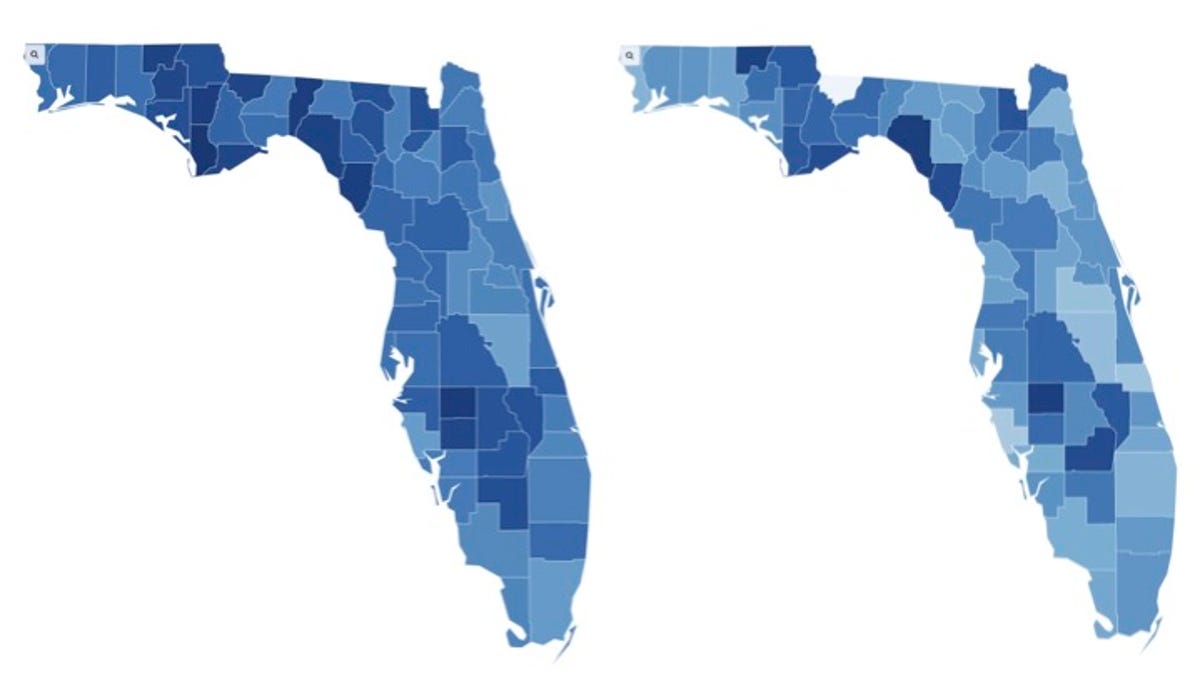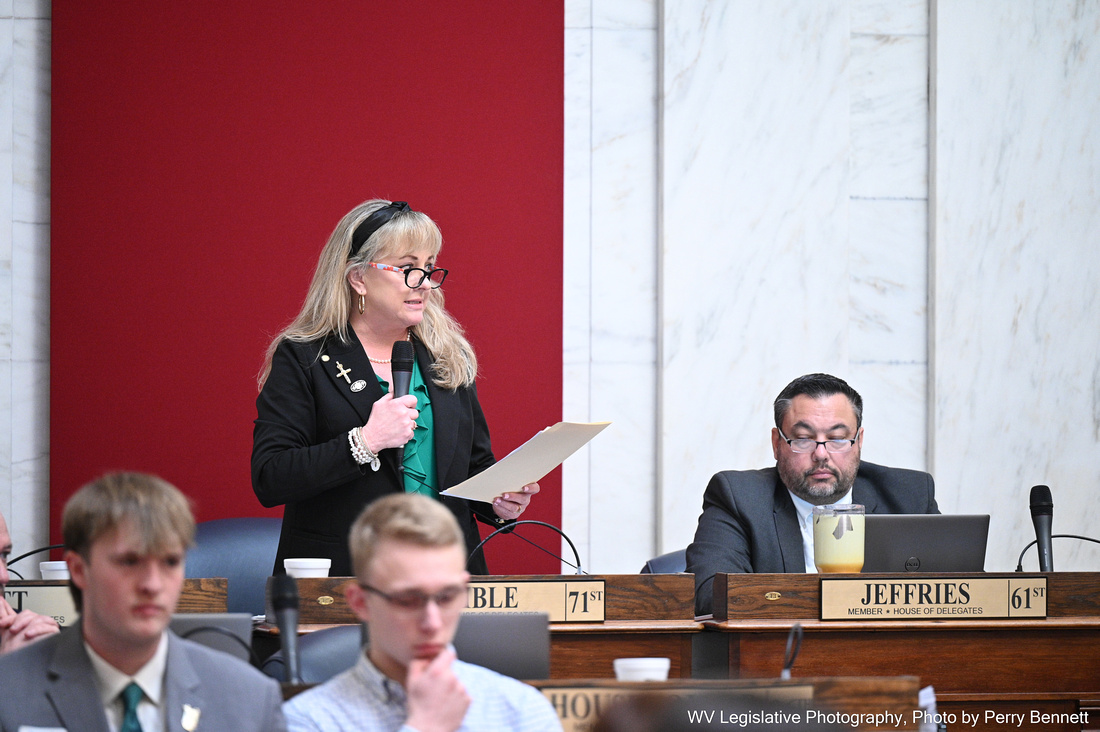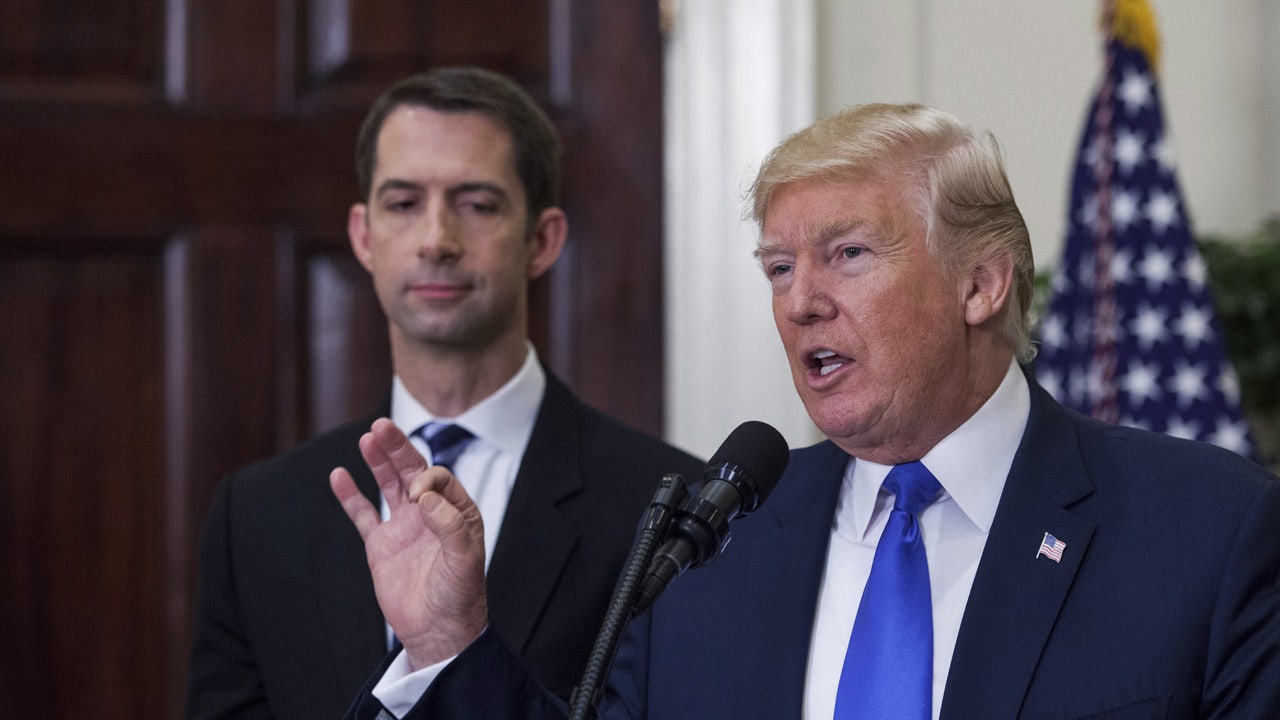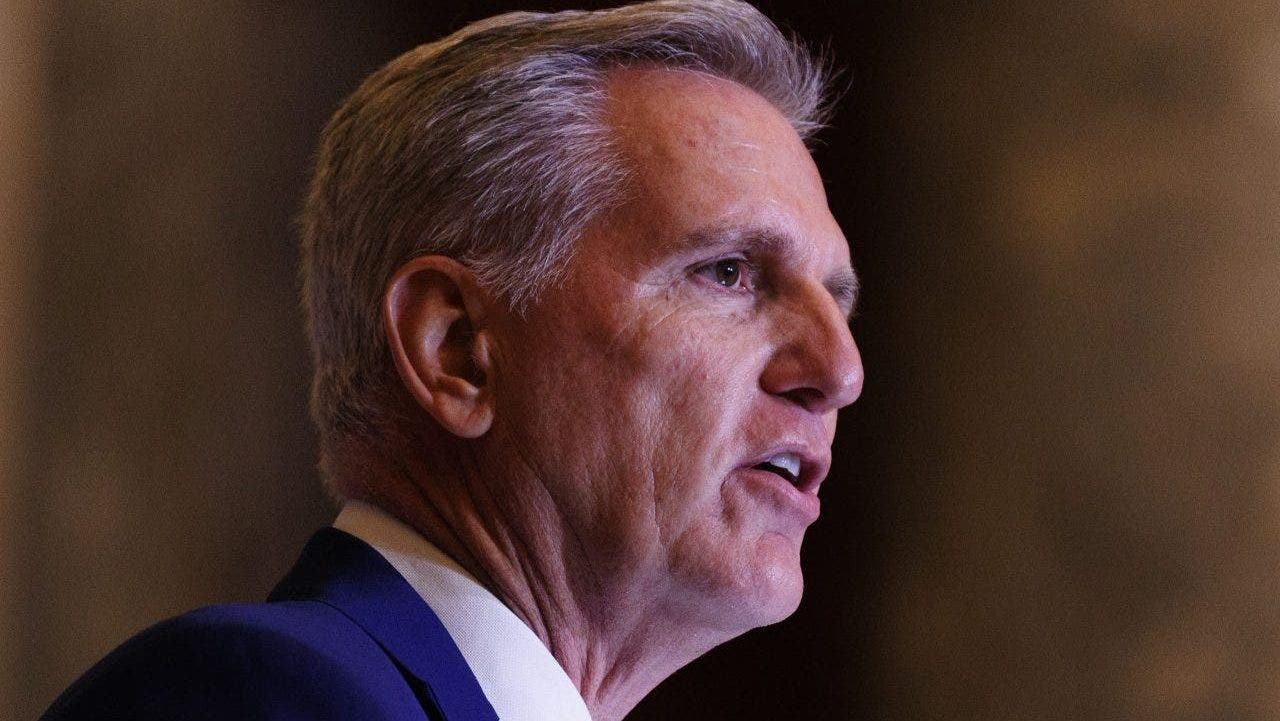Idaho
Idaho bill that would require children to opt in to vaccine registry heads to House floor – Idaho Capital Sun

Idaho legislators advanced a bill on Monday that would require parents to opt in to the state’s vaccine registry, rather than Idaho’s existing policy that lets them to opt their children out.
Legislators on Idaho’s House Health and Welfare Committee on Monday advanced a bill that would require medical providers to only share the vaccination status of Idaho kids in a state-run database if their parents or caregivers say so.
Currently, Idaho’s immunization database, called the Immunization Reminder Information System, lets patients not be part of the database by opting out. If passed, the bill would take effect July 1, 2024.
Some health care professionals said the switch could leave Idaho medical offices with millions more in administrative costs.
Idaho’s children immunization rates, which have been among the lowest in the nation for years, fell in recent years as more people opted out of vaccines required for school, Idaho Education News reported last fall. Before the pandemic, 86.5% of Idaho kindergartners, first- and seventh-grade students were vaccinated. By 2021-22, only 80.2% were, Idaho EdNews reported.
House Majority Leader Megan Blanksma, R-Hammett, who is sponsoring House Bill 397, said she worried that Idahoans vaccination data — including for adults — is in Idaho’s vaccine database without them knowing. She referenced own experience finding out that her children’s and mother’s vaccine records were in the state database without their permission, after she opted out for her children. She also said Idaho’s vaccine database originally was “opt in” based.
As she closed debate on her bill, Blanksma said many Idahoans who received vaccines “don’t know that the government was collecting your data on that vaccine” because they weren’t given an informed consent form.
“That’s what should scare us more than anything else … that there’s data collection that people don’t know about, are completely unaware of. And that’s what this bill fixes,” Blanksma said. “It makes sure everyone knows where their medical data is going.”
Blanksma also said in the hearing that Idaho’s opt-out rate was low because it is difficult to opt out, and the bill would ensure that medical “providers don’t opt you in.”
“It’s become more complicated, and less transparent,” she said. “… Anytime the government is collecting your data, it should be transparent.”
GET THE MORNING HEADLINES DELIVERED TO YOUR INBOX
How would the opt-in changes affect medical providers?
The change should not require more state and federal funds, the bill’s fiscal note estimates. Blanksma also told the committee that she doesn’t expect increased costs for providers. She said under Idaho’s current opt-in model, “they are already providing the data to the government.”
But Rebecca Coyle, who said she was an expert on immunization registries, said if you assume that this would cost $10,000 to update each system, it’d cost over $10 million across the more than 1,000 clinics connected to Idaho’s vaccine registry. The medical system today is built for an “opt-out system,” she said, and adding consent files to those systems would be costly.
“It’s going to push a cost over $10 million in costs back to citizens of this state,” Coyle said, “for fewer than 1,000 people who have opted out since 2010.”
Many rural clinics would likely “fail to comply” with the bill because of the high costs of changing the reporting system, said Dr. Cristina Abuchaibe, a doctor in eastern Idaho who represented the Idaho chapter of the American Academy of Pediatrics.
“In order for every single potential patient to be given the choice, it will require extra staff and it will require fancier electronic medical record systems. To be perfectly honest with you, the rural areas don’t have the capacity to support,” Abuchaibe testified. “We’re barely surviving now with a lot of the physicians also doing a lot of the staff work and working as a team to be able to keep up.”
Idaho Family Policy Center Policy Associate Grace Howat, the only member of the public to testify in support of the bill Monday, said Idaho’s current opt-out practice “intrudes on the privacy of Idaho parents and intrudes on parental rights.”
“Parents are responsible for raising their children, not the state,” Howat testified.
Heather Gagliano, an Idaho mom and registered nurse, testified against the bill. She said she’s been fully informed of her rights to participate in Idaho’s vaccine registry for her two children over the years.
And as a public health professional who’s given thousands of vaccines, she said she’s seen the benefits of Idaho’s vaccine system’s ease of use for medical providers. But when kids immunization records are incomplete, or hand-written and often illegible, she has to delay care, Gagliano said.
Rep. Jordan Redman, R-Coeur d’Alene, made a motion that the committee send the bill to the House floor and recommend that it pass. Only the committee’s three Democrats opposed the vote, after a failed motion by House Minority Leader Ilana Rubel, D-Boise, to hold the bill in committee.
House Bill 397 now heads to the House floor, where lawmakers could debate it before sending it through to the Idaho Senate.
What is the Immunization Reminder Information System, or IRIS?
Idaho’s IRIS system is similar to those used by other states. It helps health care providers remind people when they, or their children, are due for vaccines. Child care providers can access it to verify a child’s vaccine status. It also maintains a record so that, for example, a patient with a short memory doesn’t get a tetanus booster shot every year.
The records are stored securely and made accessible only to health care providers, child care providers and schools. Individual patients also can request their own records, or opt to have their records excluded from IRIS.
Idaho Republican leadership sent a letter to former Idaho Attorney General Lawrence Wasden in 2021 accusing the Idaho Department of Health and Welfare of unlawfully using the state’s vaccine-record keeping system, calling for the agency to destroy its records on adult immunizations. An attorney for the Idaho Office of the Attorney General replied later that year that the department wasn’t unlawfully using the system and that lawmakers were wrong.

Idaho
Drive safe, the 100 Deadliest Days are upon us – East Idaho News

The following is a press release from Idaho Transportation Department.
BOISE— Memorial Day weekend is shaping up to be a busy travel time in the Gem State. Idaho is about to enter the 100 Deadliest Days on Idaho roads- the time between Memorial Day and Labor Day when there is a spike in fatal and serious injury crashes. Seventy* people have been killed in crashes on Idaho roads so far this year — including the recent crash on US 20 in Bonneville County that tragically killed six people in one vehicle. The Idaho Office of Highway Safety (OHS) is imploring drivers to be vigilant and drive engaged this Memorial Day weekend and all summer.
“We call this period the 100 Deadliest Days, but it would be great to be proven wrong. Make it safer out there for yourself and others by slowing down, putting down distractions, buckling up, and planning a sober ride home,” said OHS program manager Josephine Middleton.
While it would seem like winter is the most dangerous time to drive, driving is more dangerous in summer. This seems paradoxical. Why would roads be more dangerous in summer when weather conditions are better? During the summer more people are out of school or work, on vacation, and celebrating leading to higher rates of risky behavior behind the wheel like impaired driving, distracted driving, and speeding.
This summer OHS and its partners across the state will work together to remind people to make safer choices whenever they are on the road. Some of these activities will include partnering with law enforcement agencies to get dangerous drivers off the road, public awareness campaigns, and community outreach events.
“We have a lot of wonderful partners who help us make Idaho’s roads a safer place, but we can’t just rely on them,” Middleton said. “We can all do a better job of looking out for each other on our roads and make it safely through this summer.”
2024 Fatality information*:
70 people killed in traffic crashes to date
- 58 people in vehicles
- 5 people on motorcycles
- 4 people on foot
- 1 person on a bicycle
- 2 people on ATVs/UTVs/etc.
2024 Fatalities by county:
District 1
- Bonner – 2
- Kootenai – 2
- Benewah – 1
- Boundary & Shoshone – 0
District 2
- Nez Perce – 4
- Idaho – 2
- Latah – 1
- Lewis – 1
- Clearwater – 0
District 3
- Ada – 7
- Canyon – 9
- Elmore – 1
- Valley – 1
- Washington – 2
- Payette – 2
- Owyhee – 1
- Adams, Boise & Gem – 0
District 4
- Lincoln – 3
- Cassia – 7
- Jerome – 3
- Twin Falls – 1
- Blaine – 1
- Minidoka – 1
- Camas & Gooding – 0
District 5
- Franklin – 2
- Bingham – 3
- Bannock -2
- Oneida – 1
- Power, Bear Lake & Caribou – 0
District 6
- Bonneville – 8
- Custer – 1
- Madison – 1
- Lemhi, Butte, Clark, Jefferson, Fremont, & Teton – 0
*All 2024 data is preliminary and subject to change.
=htmlentities(get_the_title())?>%0D%0A%0D%0A=get_permalink()?>%0D%0A%0D%0A=htmlentities(‘For more stories like this one, be sure to visit https://www.eastidahonews.com/ for all of the latest news, community events and more.’)?>&subject=Check%20out%20this%20story%20from%20EastIdahoNews” class=”fa-stack jDialog”>
Idaho
10 Things People Want Banned In Idaho ASAP

We’re in an election year and now more than ever, people are thinking about public policy and all of the things they wish they could change.
Politics does something funny to a person too – it has the ability to morph our rationale and in some people, metaphorically put blinders on them in the midst of their arguments.
Not all policies are created equal
We all know how politics work, right? What’s important to Person A might not be as important to Person B and vice-versa. The goal of our government is to try and find common ground in the form of bipartisanship.
Here’s the thing – not all issues or even policies were created equal and that’s where we come in.
We wanted to know – what are some things people aren’t talking about that you would want at the forefront of discussion? What are those annoying and petty things that you want to be eliminated from the Treasure Valley?
We asked people to share with us ten things they would want banned in the Treasure Valley and the responses didn’t disappoint.
What would you add to the list? Let us know here! Here are ten things people want to be banned in Idaho ASAP…
10 Things People Want Banned In Idaho ASAP
Here are ten things people want banned in Idaho… what would you add to the list?
Gallery Credit: Chris Cardenas
Speaking of things people want to be banned in Idaho, here are ten more things that people want to be outlawed in Idaho.
10 Totally Legal Things Idaho Residents Want To Outlaw
We asked the people of Idaho about the absolutely legal things they want to make illegal. Here is what they said…
Gallery Credit: Chris Cardenas
Speaking of laws, should Idaho turn its attention to plastic shopping bags and the amount that people are taking? As it turns out, some people believe so… what do you think?
Should Idaho Law Focus Its Attention On Shopping Bags?
Idaho doesn’t have a tax on plastic bags at the grocery store… should they? Here’s what the people of Idaho are saying.
Gallery Credit: Chris Cardenas
Idaho
Op-Ed: The Pros and Consequences of Chuck Winder’s Loss

Many positives emerge with Chuck Winder’s departure. Here are just a few likely benefits:
1. More House Bills Might Get Heard
It’s long been discussed in the halls of the statehouse that Idaho’s Senate served as the governor’s arm in the legislature. After all, it’s easier for a governor to influence and control 18 senators (out of 35) instead of 36 representatives (out of 70.)
As leader of the Senate, Chuck Winder decided who would serve on which committees and who would serve as the chair and vice chair of each committee. That was his right as President Pro Tem.
Privately, legislators said Winder served the governor more than he served the people of Idaho, and that he often influenced committee chairs to stick bills in drawers so they didn’t get debated or voted on. Publicly, Winder denied that happened, but privately, legislators said it happened all the time.
Winder all but tipped his hand regarding this practice in March of 2022, when he publicly said, “There are a lot of bills, more so than normal, that are in drawers on our side of the building. I think most of them will stay there, so I don’t think you’ll see some of the craziness that the House seems to like to do get very far in the Senate.”
2. The Will of the People Might Get Respected
On multiple occasions, Winder referred to bills passed by Idaho’s House of Representatives as “crazy.” It would have been nice for Winder to remember that members of the House of Representatives are elected by the people of Idaho to represent their views. With that, if a majority of House members vote a certain way, those votes are said to indicate the will of the people.
Winder said it was craziness for Idahoans to not want certain books to be freely accessible to children of all ages in libraries – books that contain graphic illustrations of teens pleasuring each other. This shows that Winder was out of touch with the people of Idaho. The decent people of Idaho deserve respect – not to be referred to as crazy.
Winder is said to lead a Bible study. One question for Mr. Winder might be, “Which version of the Bible would imply it’s good for young children to have free and ready access to view graphic images of teens pleasuring each other?”
3. Transparency in Government Might Increase
A recent article in the Idaho Tribune outlined a likely conflict of interest that involved Chuck Winder. In short, after the state’s Transportation Department moved its operations, the state was sitting on prime real estate on State Street in Boise. How that property was defined and valued by the state veered far from normal.
The manner in which this property was being sold raised many red flags in the state’s House of Representatives, so they voted 70-0 (which almost never happens) to create a review process. However, the State Affairs Committee stuck that bill in a drawer. Chuck Winder was on the senate State Affair Committee. Also, before he was in the senate, Winder was chairman of the Idaho Transportation Board.
Coincidently, Mr. Winder makes his living as a commercial real estate professional.
After the original bill was drawered, multiple bills were then created, and Winder argued against them, even saying “I will die on this hill.” Although tens of millions of dollars were at play in this real estate issue, Winder never declared a potential conflict of interest, even though Senate Rules state his work as a real estate professional required such a statement.
(Side note: With Winder’s ouster, perhaps his words, “I will die on this hill,” were prophetic.)
Consequences of Winder Being Gone
People hear the word “consequences” and usually think if the word means something negative. Not true. The word simply means the ripple effects of a particular action or condition. Ripple effects can be positive, negative, or neutral.
Control
The obvious consequence of Winder’s departure is that someone else will be chosen to be Senate President Pro Tem. That means someone else will be choosing committee chairs and vice chairs, deciding which senators will serve on which committees, and determining which legislation gets prioritized.
As Pro Tem, Winder also facilitated Republican caucus meetings. One Senator who wanted to remain anonymous informed this writer that with Winder gone, caucus meetings are likely to be more enjoyable. “Winder did a lot of browbeating to keep people in line,” was one comment provided. “Chairmen will now be freer to act like chairs instead of puppets for Winder.”
That is, providing the next Pro Tem is not a control freak.
Finances
Earlier it was mentioned that Winder was voted out in part for being a big spender, regularly voting for bills that spend more of the taxpayer’s money. With that said, what follows is interesting.
As soon as it was announced that Winder was ousted, Senator C. Scott Grow (Dist 14) announced he was throwing his hat in the ring to be the next President Pro Tem. Others have suggested Senator Kelly Anthon (Dist 27) is “next in line,” since he’s been the Senate Majority Leader the past few years.
Since past results are the best indictors of future performance, the Idaho Senate should beware. Let’s start by looking at Chuck Winder’s spending score, published by the Idaho Freedom Foundation, based by his voting record:
Winder’s 2024 spending score: 22.9.
Anything below a 60 is considered an “F” (failing) score.
Now let’s look at the spending scores of the Senate Minority Leader, Democrat Melissia Wintrow (Dist 19) and that of the Democrat House Minority Leader, Ilana Rubel (Dist 18).
Wintrow’s 2024 spending score: 13.0
Rubel’s 2024 spending score: 15.2
Over the years, it has become common knowledge that Democrats have no problem spending the taxpayers’ money. The “Republican” Winder scored a 22.9, but our state’s Democrat leaders validate the Democrats’ “big spender” reputation by scoring 13 and 15.2.
Winder’s rating of 22.9 is embarrassing, and the Democrats’ ratings of 13 and 15.2 are pretty bad, but let’s look at the 2024 spending scores for C. Scott Grow and Kelly Anthon:
Grow’s 2024 spending score: 11.3
Anthon’s 2024 spending score: 10.3
Yes, you read that right. The two senators currently being discussed to replace Chuck Winder as Senate President Pro Tem are bigger spenders than the Democrat leaders in both the Senate and the House.
Our Senators Must Choose Wisely
Spending in Idaho’s government has gone up 54% over the past four years. Where does our government get that money? Has your income increased that much in the past four years?
Remember; the Senate President Pro Tem sets the Senate’s agenda. Can Idaho afford a Senate leader who is more addicted to spending than Chuck Winder?
Bottom line, a substantial change will occur in the Idaho Statehouse come January of 2025. Some things are likely to be better. Other things could be substantially worse. Time will tell.
*Idaho’s Lt. Governor is technically the President of the Senate. “Pro Tempore” is Latin, meaning, “for the time being” or “temporary.” The Senate President Pro Tempore (often stated “Pro Tem) is chosen by the Senators to oversee the operation of the Senate when the Lt. Governor is absent. The Pro Tem is recognized as the senior-ranking member of the Senate, even over the Senate Majority Leader.
This Op-Ed was submitted by Daniel Bobinski and originally published on TrueIdahoNews.com. Op-Eds do not necessarily reflect the views and opinions of those at the Idaho Dispatch.
Tags: Chuck Winder, Cons, Idaho Senate, Josh Keyser, Kelly Anthon, Pro Tempore, Pros, Scott Grow
-

 Movie Reviews1 week ago
Movie Reviews1 week ago‘The Substance’ Review: An Excellent Demi Moore Helps Sustain Coralie Fargeat’s Stylish but Redundant Body Horror
-

 Politics1 week ago
Politics1 week agoTrump predicts 'jacked up' Biden at upcoming debates, blasts Bidenomics in battleground speech
-
/cdn.vox-cdn.com/uploads/chorus_asset/file/24038601/acastro_STK109_microsoft_02.jpg)
/cdn.vox-cdn.com/uploads/chorus_asset/file/24038601/acastro_STK109_microsoft_02.jpg) Technology1 week ago
Technology1 week agoMicrosoft’s Surface AI event: news, rumors, and lots of Qualcomm laptops
-

 World1 week ago
World1 week agoIndia’s biggest election prize: Can the Gandhi family survive Modi?
-

 News1 week ago
News1 week agoA bloody nose, a last hurrah for friends, and more prom memories you shared with us
-

 Finance1 week ago
Finance1 week agoSan Bernardino finance director claims she was fired after raising concerns about costly project
-

 News1 week ago
News1 week agoVideo: A Student Protester Facing Disciplinary Action Has ‘No Regrets’
-

 World1 week ago
World1 week agoPanic in Bishkek: Why were Pakistani students attacked in Kyrgyzstan?




















